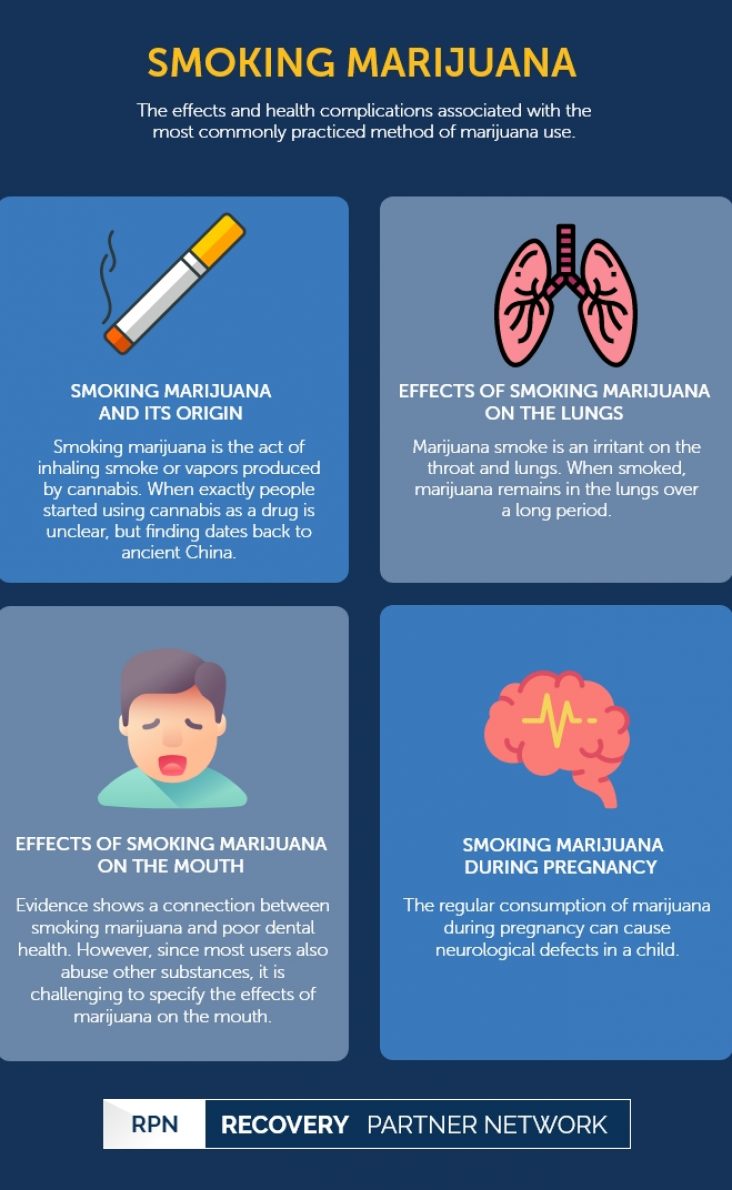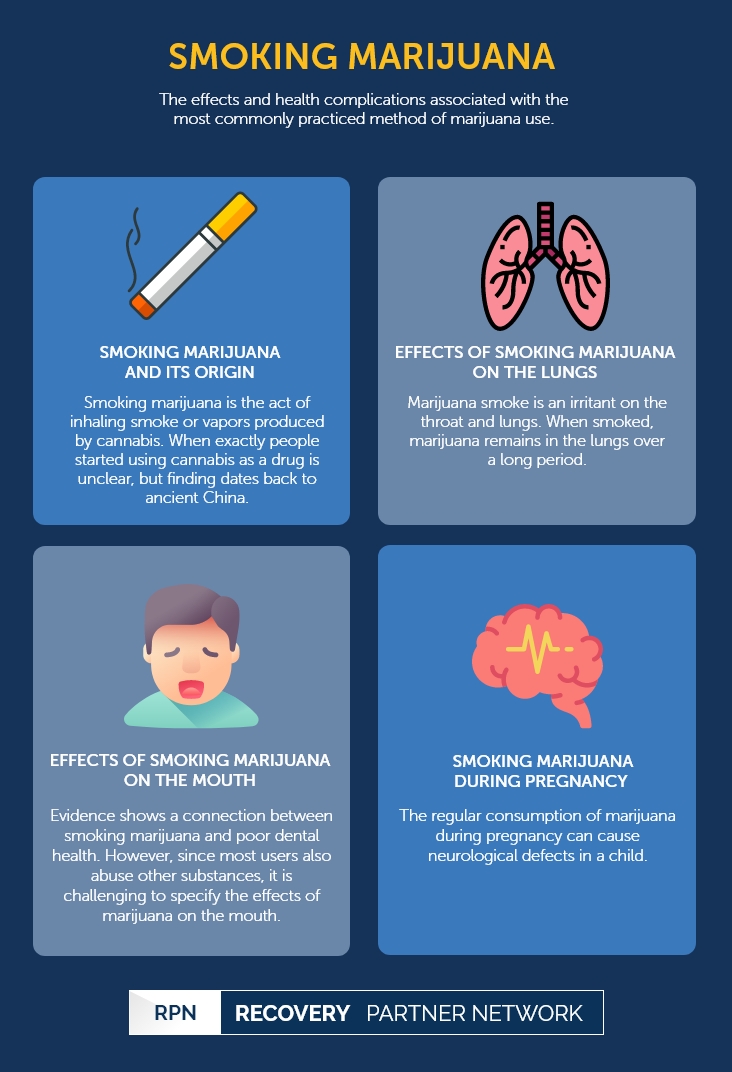The effects and health complications associated with the most commonly practiced method of marijuana use.
Smoking Marijuana
Illicit drugs
- Ayahuasca addiction – Abuse
- Baclofen addiction
- Black tar heroin addiction
- Cannabis addiction
- Cocaine dependence
- Crack cocaine addiction
- DMT addiction abuse treatment
- Does Marijuana Kill Brain Cells?
- Ecstasy addiction
- Gabapentin addiction
- gamma-Hydroxybutyric acid addiction
- Hallucinogen
- Heroin addiction
- Illicit drug addiction
- Inhalant addiction
- Cocaine
- Ketamine addiction
- Lysergic acid diethylamide addiction
- Mescaline addiction
- Methamphetamine addiction
- Meth Labs: Cooking up Addiction
- Meth Mouth
- Microdosing
- Phencyclidine addiction
- Psilocybin mushroom addiction
- Sage of the diviners – Addiction
- Shooting Heroin
- Shooting Methamphetamine
- Smoking Cannabis
- Speedball
- Synthetic cannabinoids
Smoking Cannabis | Table of Contents
Smoking Marijuana and Its Origin
Smoking marijuana is the process of inhaling smoke or vapors produced by cannabis. Marijuana can be smoked in various ways, including hand-rolled joints, blunts, or through pipes, bongs, and vaporizers.
- Joint: A joint is a term used to describe cigarettes that are filled with marijuana.
- Blunt: A blunt is an emptied cigar that has been partly or fully loaded with marijuana.
- Pipe: Also known as a bowl, it is an instrument with a mouthpiece that allows users to inhale the fumes as marijuana is heated.
- Bong: An instrument that is similar to a pipe but with the addition of a water chamber through which fumes pass through prior to inhalation.
- Vaporizers: Some prefer to use vaporizers to avoid inhaling the smoke. The device absorbs the active ingredients of marijuana and stores them in a unit as vapors, which is then inhaled by the user.
When exactly people started using cannabis as a drug is quite unclear. However, archaeologists have uncovered tools used to burn psychoactive marijuana in China, dating back 2,500 years. The Chinese Emperor Shen Nung developed the first written record of cannabis use in 2727 B.C., nearly 5,000 years ago. Due to the speed of its growth and its use as hemp for ropes and cloths, cannabis has been used in many ancient societies and to the present day. Although we have been smoking marijuana for thousands of years, its long term effects on our bodies are still not fully understood. However, recognizing these effects has become more important over the last few years as the legalization of marijuana has substantially increased its use.
FAQ
- What are the effects of inhaling secondhand marijuana smoke?
- Is vaping marijuana safer than smoking it?
- How long does marijuana stay in your system?
- Can marijuana lead to psychosis?
Secondhand marijuana smoke can induce a high if someone is in an enclosed space. It can also affect heart and blood vessels, similar to secondhand tobacco smoke.
Vaping marijuana is considered unsafe in comparison to smoking marijuana as the chemicals and toxic metal particles found in vaporizers are harmful on their own.
Marijuana remains in the body for up to 30 days after the last use.
Individuals who smoke marijuana with high THC levels may experience brief psychosis.
Effects of Smoking Marijuana on the Lungs
Similar to tobacco smoke, marijuana smoke is an irritant on the throat and lungs. When smoked, marijuana remains in the lungs over a long period. Marijuana contains volatile chemicals and tar that is similar to that of tobacco smoke. However, the comparison of which is more dangerous is yet to be determined.
Smoking marijuana deposits four times as much tar in the lungs as cigarettes, partly due to the inhalation technique. The common method of smoking marijuana involves holding the smoke in the lungs for a much longer period than other smoked substances. This prolonged exposure allows more of the molecules to settle in the respiratory system, causing an inflammatory reaction in the airways and lungs. Smoking marijuana can cause coughing, wheezing, and tightness of the chest. People who self-identify as heavy users exhibit more frequent symptoms of bronchitis and often show increased airway resistance. The Guardian reported that smoking a single marijuana joint may cause as much harm to the lungs as five change-smoked cigarettes. The U.S. Food and Drug Administration (FDA) had also informed the public of the dangers associated with vaping marijuana as many fell ill or died from this practice.
Risk of Lung Cancer
One of the most pressing concerns posed today is the potential to cause lung cancer due to smoking marijuana. Although marijuana smoke contains carcinogens (cancer-causing chemicals), no direct link has yet been established between smoking marijuana and lung cancer. In addition, as most users generally combine tobacco along with marijuana, and the research that uncovered the link of anti-tumor effects of both tetrahydrocannabinol (THC) and cannabidiol (CBD,) the two main active ingredients of marijuana, has further contributed towards the confusion.
Research into the effect of marijuana on the lungs is more complicated due to several factors that obscure the results, especially concerning the lungs. Many people who have reported using marijuana for a significantly long period have also reported using cigarettes, which is widely proven to cause cancer. These factors may distort the study to the point where researchers cannot easily conclude. On the other hand, marijuana smoke produces a larger amount of tar in comparison to cigarette smoke and various carcinogens. Therefore, Although not yet scientifically proven, it is cause for concern.
FAQ
Marijuana smoke contains a toxic mix of gases and tiny particles that can harm the lungs. Smoking marijuana may result in the same health complications as smoking tobacco.
Effects of Smoking Marijuana on the Mouth
Research on the effects of cannabis on oral health often correlates with the same issues faced by lung research. Identifying a single substance and its specific effects on the mouth have proven to be a challenging task. Evidence has tentatively shown a connection between smoking marijuana and poor dental health. Still, many people who smoke marijuana also tend to drink alcohol, smoke nicotine products, or take poor care of their teeth.
Risk of Testicular Cancer
The data collected on lung cancer may be difficult to ascertain, but new research is beginning to unravel a possible connection between heavy cannabis use and testicular cancer. As per a study posted in JAMA Network in 2019, men who smoke marijuana every day for ten years or longer have an approximately 36 percent greater chance of contracting testicular cancer in comparison to men who do not smoke the substance. To conclude, researchers reviewed 25 previous studies that examined the correlation between marijuana usage and various cancers, including testicular cancer, oral cancer, lung cancer, and head and neck cancer. While researchers found no connection between frequent marijuana use and lung, oral, or neck cancer, they did, however, find that daily cannabis use can raise the risk of testicular cancer.
Although scientists are unclear about the cause of this reaction, they do assume that the way THC and CBD bind to certain cells can trick your body into progressing tumor cell growth. However, more research is required to determine the cause for certain.
Smoking Marijuana During Pregnancy
Most of the information suggests that the use of marijuana during pregnancy can negatively affect the child at birth and, possibly, during childhood. The regular consumption of marijuana during pregnancy can cause neurological defects in a child. Unfortunately, there is limited research available to demonstrate the long-term effects of marijuana use on the child as they grow. As per the 2018 analysis of those studies, prenatal marijuana exposure could cause:
- Increased tremulousness
- Poor problem-solving skills
- Altered responses to visual stimuli
- Problems with sustained attention and memory
FAQ
Marijuana use during pregnancy can harm the fetus and cause children to be born with decreased cognitive skills. As THC can be excreted into breast milk, breastfeeding mothers are highly advised to refrain from smoking marijuana during that period.
Recovery Partner Network
We aim to educate and empower. If you feel our library of resources does not cover your specific need, reach out to us, and we would be happy to help.
STATISTICS
© Copyright 2026


